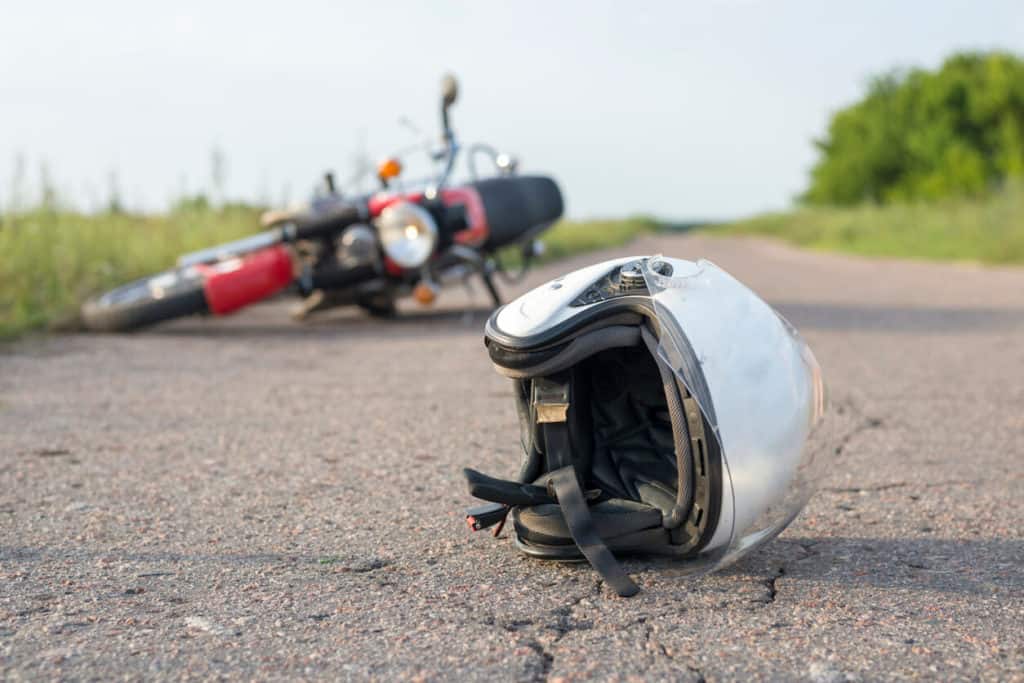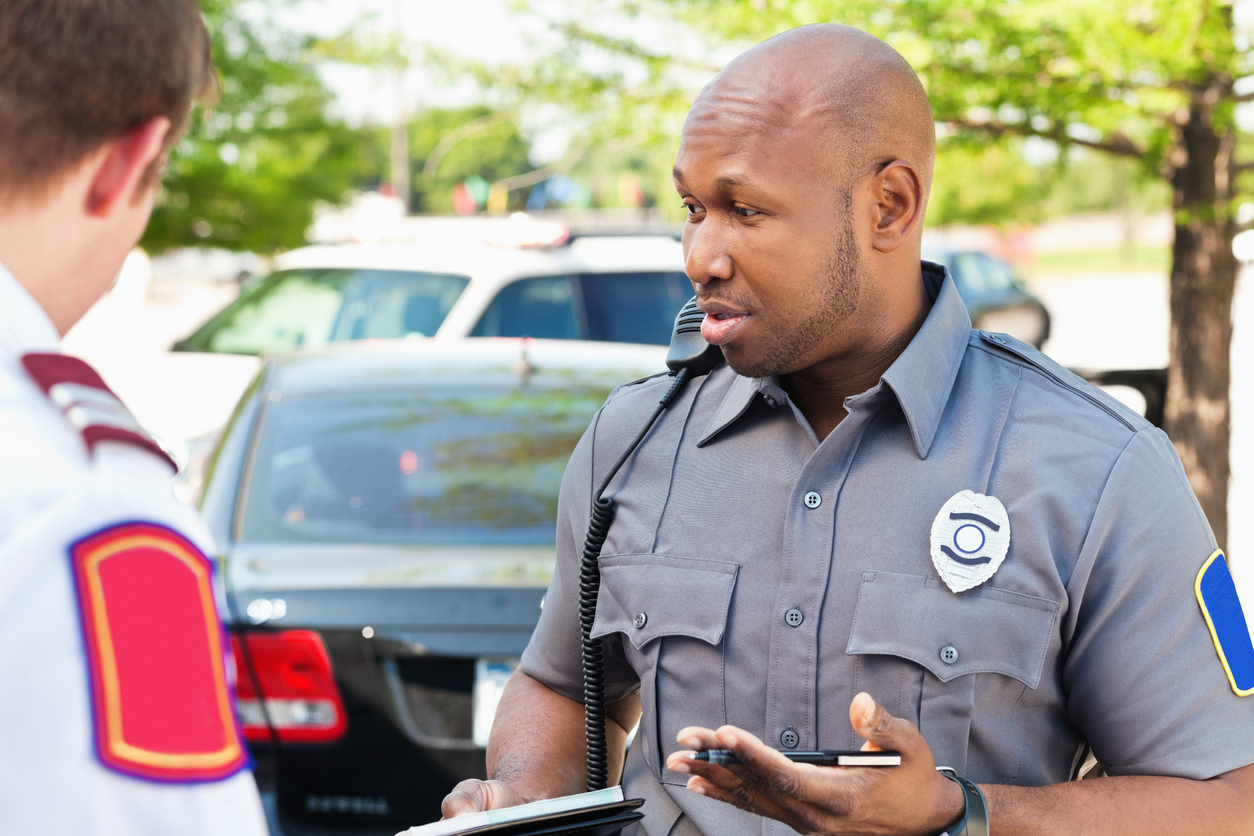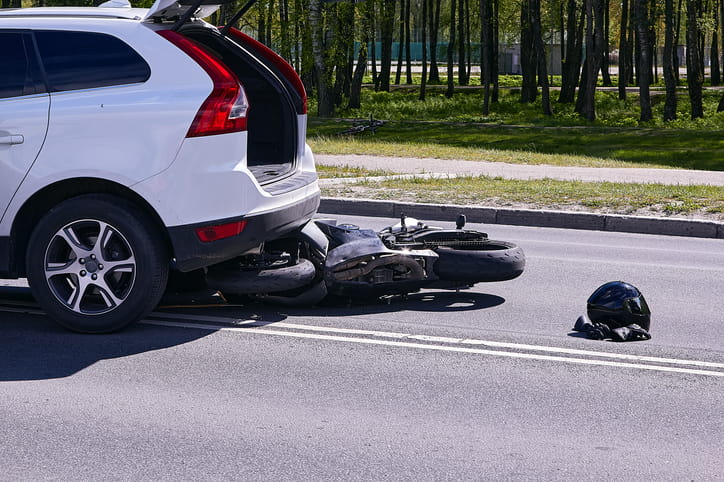How To File a Motorcycle Accident Claim

Getting fair compensation for a motorcycle accident requires filing a claim. How do you go about it? You must file the claim by following the proper steps. Our motorcycle accident lawyers explain how to file a motorcycle accident claim:
1. Determine Who Is at Legal Fault
Filing a claim for a motorcycle accident starts with knowing who you are making a claim against. To determine the at-fault party, you must investigate who is responsible for paying damages. Keep in mind that fault may be shared among multiple parties. It may require investigation beyond the initial accident report.
Motorcyclists have the same rights¹ as other vehicle operators. The law expects others around you to always use reasonable care and caution. When you evaluate the actions of each party, determine who acted negligently, recklessly, or intentionally in a way that caused harm. In addition, assess the insurance companies involved and who should be a part of the claim.
Once you identify who is at legal fault, you know who to name as the defendant in your claim.
2. Identify Your Damages
After you know who you are claiming compensation from in your motorcycle accident claim, you need to know what you are claiming in compensation. Under the law, there are many types of compensation that you can claim for a motorcycle accident. Medical bills are important, but they are just the beginning. In addition to immediate medical bills, you can claim physical therapy, medical bills in the future, nursing care, prescriptions, and other expenses.
Beyond medical expenses, you can claim pain and suffering, damage to your motorcycle, disfigurement, and emotional anguish. These losses are often worth more than the medical bills. It’s common for victims to ask for too little, especially in motorcycle accident claims where injuries and damages are typically significant. When you identify your damages, you can correctly include them in your complaint for compensation.
3. Find the Right Court
You’ve determined who you’re claiming compensation from and what you are claiming. There’s one more thing to do before you file your legal documents. You need to know what court is going to hear the claim.
Courts have different requirements for jurisdiction and venue. If you don’t file your case in the right court, it can’t be heard. A case is heard in state or federal court. Within the state court system, there are multiple levels of courts for different types of cases and varying amounts. The location of the crash and the parties involved may impact which court can hear the claim. In Colorado, you’re most likely to file a motorcycle accident case in a District Court.
4. Prepare a Summons and Complaint
Now you’re ready to file your motorcycle accident claim. You need to prepare your legal documents. A complaint is a document that summarizes the case and starts it. A complaint must follow specific requirements to state your legal causes of action and the relief requested. These documents must comply with procedural requirements. Generally, if a claim is omitted, you lose your right to make that claim. In addition to a summons and complaint, there may be other requirements like needing several copies and a civil cover sheet that provides information to the court about the type of case.
5. File Your Legal Documents in Court
Once everything is complete, you file your legal documents in court. Usually, this means taking the documents to the court clerk for the court with jurisdiction. If you have a motorcycle accident lawyer, they file these documents for you. If you are representing yourself, electronic filing may be available.
6. Pay the Filing Fee and Comply With Other filing requirements
All motorcycle accident claims have a filing fee to start the case. Once the fee is paid, the case formally begins. Once the court accepts all the documents and you pay your filing fee, you have filed your motorcycle accident claim.
7. Serve the Other party
Filing your case is only the beginning. It’s a requirement to make sure the defendants know that they are a part of the case. You must complete legal service in compliance with rules of procedure. There are time limits and rules for what constitutes proper service. Once service is complete, you prepare a proof of service document. Then, the case has formally begun. You may proceed to pursue discovery and build your case, following the rules of procedure.
Other Things To Know When Filing a Motorcycle Accident Claim
You shouldn’t wait until you file your personal injury claim to begin building the evidence. In a motorcycle accident case, the medical care that you receive is important. It documents losses and establishes that you have damages from the accident. Preserving evidence can happen right away. It can help move your case forward quickly and with the evidence you need for success.
It’s also essential to make timely reports to insurance companies. While you shouldn’t wait to file a legal claim, it may be possible to negotiate a fair settlement with the insurance company instead of filing a claim. This can happen concurrently while you file your motorcycle accident claim. A lawyer can represent you in the process.
Finally, remember that there is a statute of limitations² for motorcycle accident claims. You have a limited time to file your case. Don’t wait to prepare and file your claim. This information is for general informational purposes only, and it is best to enlist a professional attorney to help guide you through the legal process.
Lawyers for Filing Motorcycle Accident Claims

Our motorcycle accident attorneys offer expert legal advice and can help guide you through the steps of filing a lawsuit to create a strong claim. We help both car accident and motorcycle accident victims navigate the process of insurance claims, police reports, and collecting evidence. Contact our personal injury lawyers today to talk about your case.
Sources:
¹State by State Laws to Motorcycle Laws. (20 April 202) Motorcycle Legal Foundation. Retrieved 6 June 2022.²O, Neill, Cara. Civil Statutes of Limitations. Nolo. Retrieved 6 June 2022.





